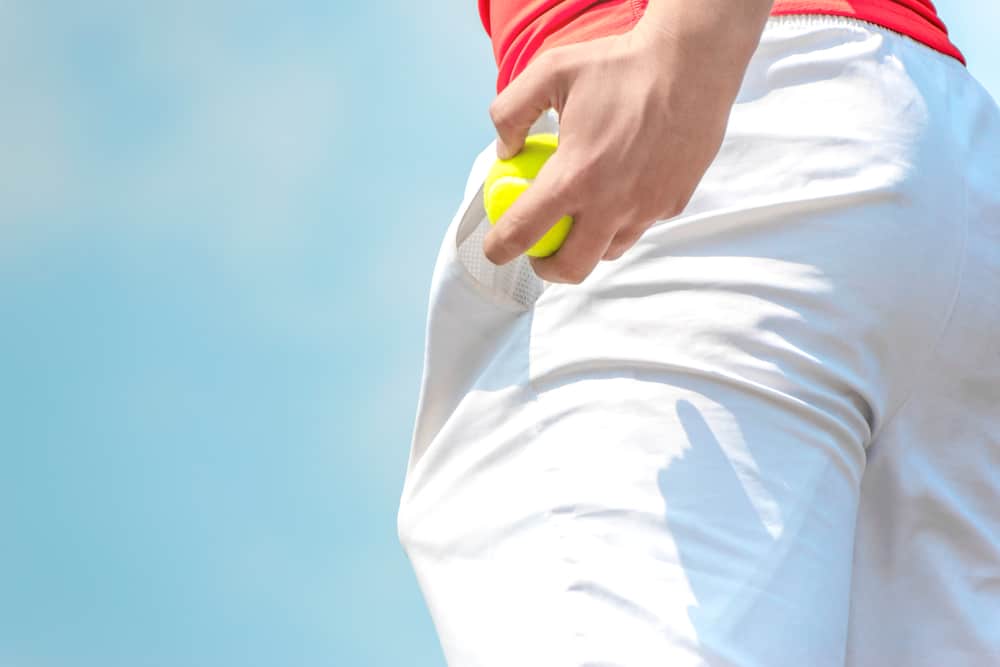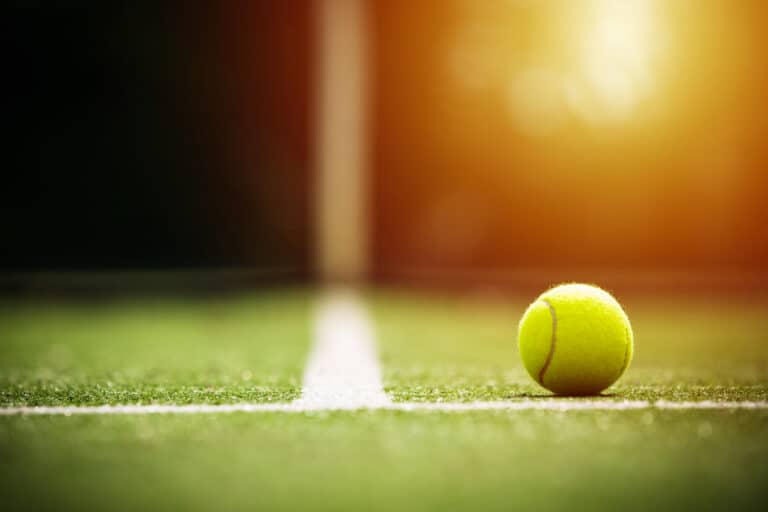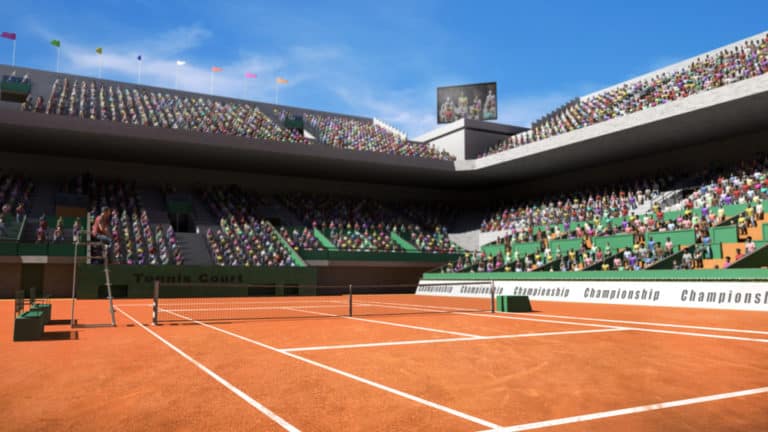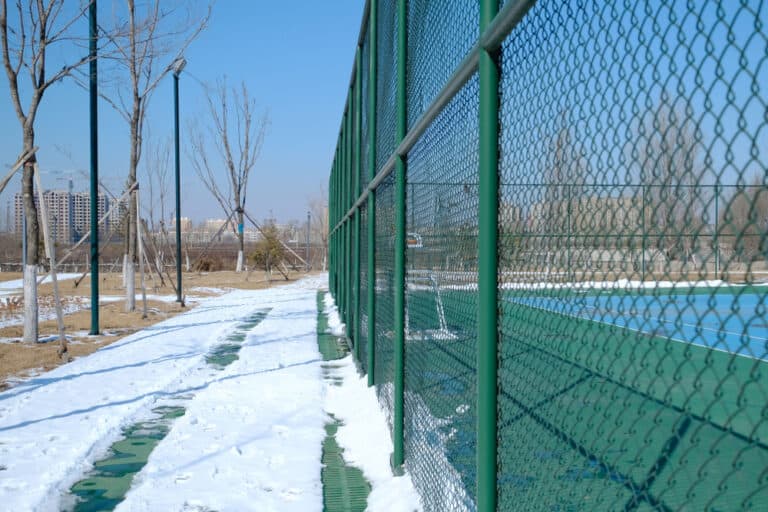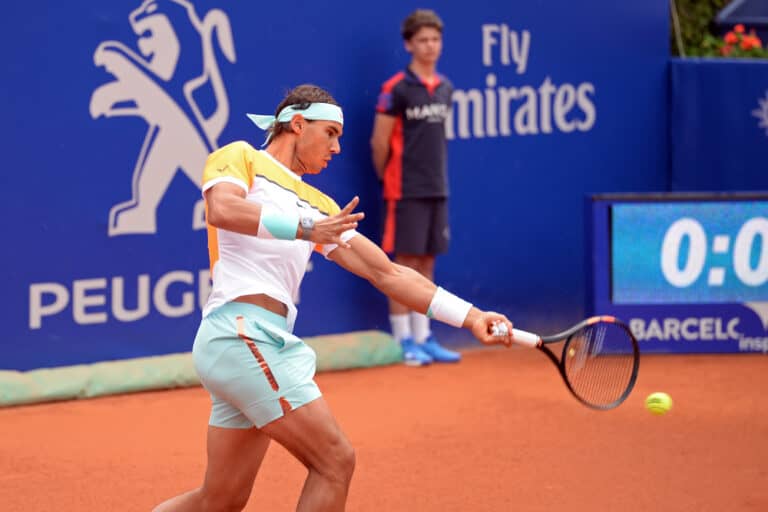What Happens If A Ball Falls Out Of Your Pocket In Tennis?
When playing the service in tennis, I always put a spare tennis ball in my pocket so that it can be quickly at hand in case my first service is a fault. Not that it has happened to me yet, but the thought has crossed my mind of the ball falling from my pocket while I am running across the court and what the consequences would be.
If a tennis ball falls from a player’s pocket or from tucked under a tennis skirt, only the opposing player is entitled to claim a distraction. If the ball falls accidentally, then the point will get repeated. If the ball is dropped intentionally, then the player dropping the ball will lose the point.
Let’s take a closer look at the instances where a player has a ball fall from their pocket or from tucked under a skirt in the case of female players and what the consequences are. There are also instances where your hat or sports sunglasses could fall off during the playing of a point.
What Happens If A Ball Falls Out Of Your Pocket In Tennis
A ball falling from your pocket is classified as a hindrance under the rules of tennis. Another form of hindrance under the same rule is if your hat or sports sunglasses fall off during a point.
The important factor to note is that if the ball falls from your pocket or your hat falls off it is only the opponent that can claim the hindrance, not you. If your opponent claims the hindrance, he/she will call for a “let” or replay of the point.
The player claiming the hindrance has some leeway and does not need to claim the hindrance immediately. However, the hindrance must be claimed before the point is over.
What Is A “Let” In Tennis
A “let” in tennis is any instance where the point gets stopped and then gets replayed from the start, in other words, from the service. A “let” occurs most commonly when a service clips the net cord and still lands in. The point will be stopped, and that service will be repeated. In other words, there will be the first service let or a second service let.
A common reason to call a “let” during a casual game is if a ball from another court rolls onto your court in the middle of a point. Here tennis etiquette dictates that you should stop so that the stray ball can be collected and passed back to the court where it came from. Once the stray ball has been returned, you and your opponent will restart the point you were playing when the stray ball landed in your court.
A “let” can also be claimed by your opponent for hindrance if a ball falls from your pocket or your hat comes off during a point. In this last instance, it is only the opponent of the player that caused the hindrance that can call the “let” for the point to be restarted.
Why In Tennis Is It Called A Let?
The term “let” refers to when a point is stopped and then restarted. It is called a “let” because you are letting the ball pass before restarting the point. A “let” point can be restarted from either the first service or the second service. That is why you will hear an umpire saying, “let the first service” or “let the second service.
Would You Be Allowed To Call For A Let If A Ball Falls Out Of Your Pocket During A Point?
In terms of the rules of tennis, you are not permitted to call for a “let” if you created the problem yourself, such as having a ball fall out of your pocket or dropping your hat.
However, most tennis players are courteous and will allow a let when they can clearly see that it was an accident.
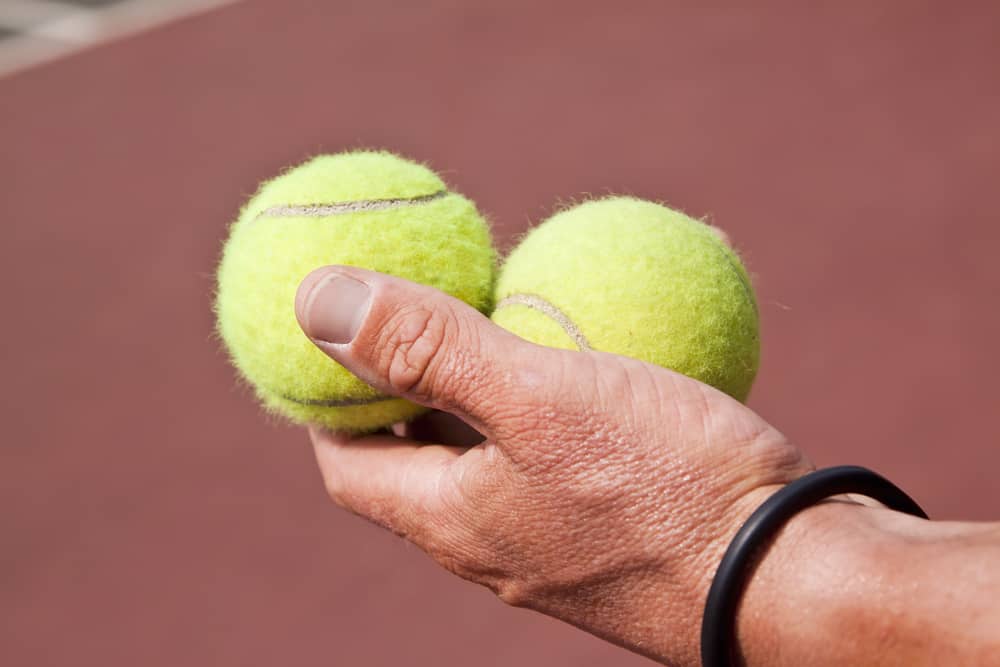
Is There A Penalty If The Ball Drops Out Of The Pocket
We need to draw a clear distinction between dropping the ball out of your pocket accidentally and doing so intentionally. Most of what we have discussed so far is about a ball dropping from a pocket accidentally during the playing of a point. In this case, the opponent can claim a distraction, and the point gets replayed as a let.
If the opponent claims the distraction and the umpire rules that the ball was dropped intentionally, then the player dropping the ball will lose the point. Under this rule, I would have lost many points when I first started playing tennis at the age of 10. My tennis shorts didn’t have pockets big enough to hold a tennis ball. Likewise, my hands weren’t big enough to hold a ball and play a double-handed backhand.
So, when my first service went in, I would throw my spare (second service) ball away behind me to continue playing the point. Although I only did this in casual practice games, my opponents could have claimed this as an intentional distraction to win more points on my service. However, my 10-year-old opponents were doing exactly the same thing so everyone claiming points would have defeated the point of playing practice games.
A year later, when I played my first competitive game, my coach reminded me of this rule and told me to only take one ball instead of two when playing my first service so that I wouldn’t need to drop the ball on the court.
On the men’s professional circuit, the ATP has an interesting rule in place. The first time a player has a ball fall from his pocket during a match and the distraction is claimed by the opponent, the umpire can rule the distraction as accidental. However, if a ball falls from the same player’s pocket a second time during the same match, it will be ruled as intentional with the loss of a point.
